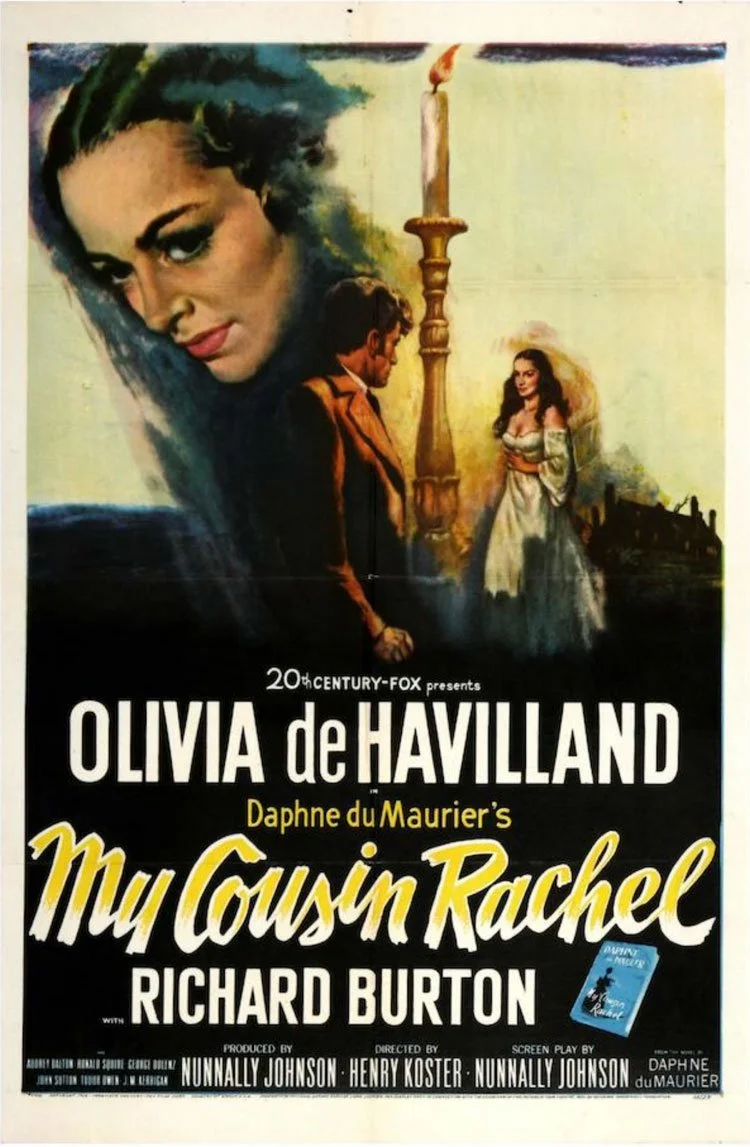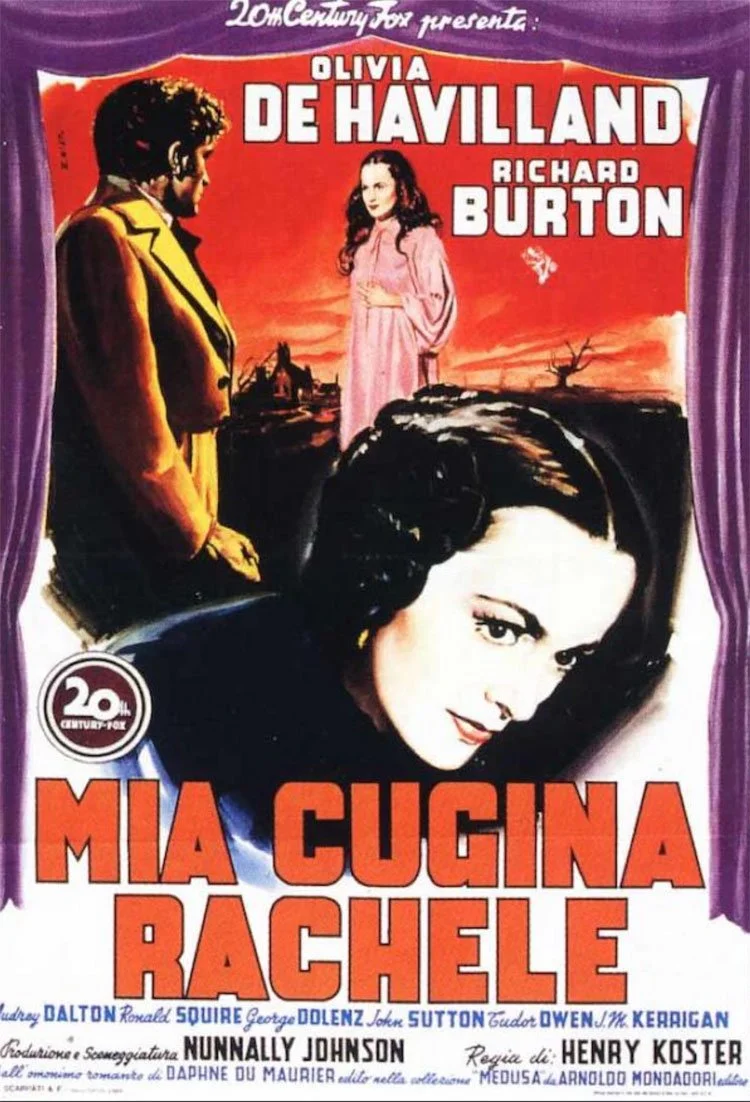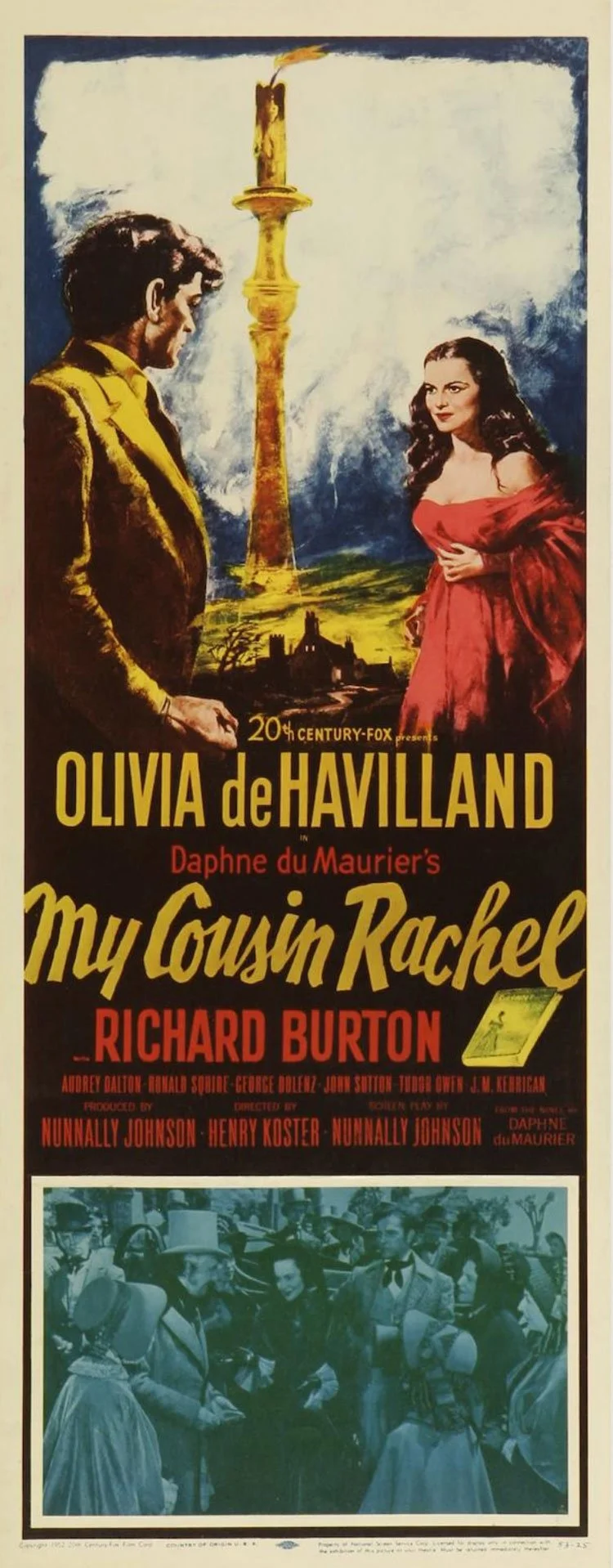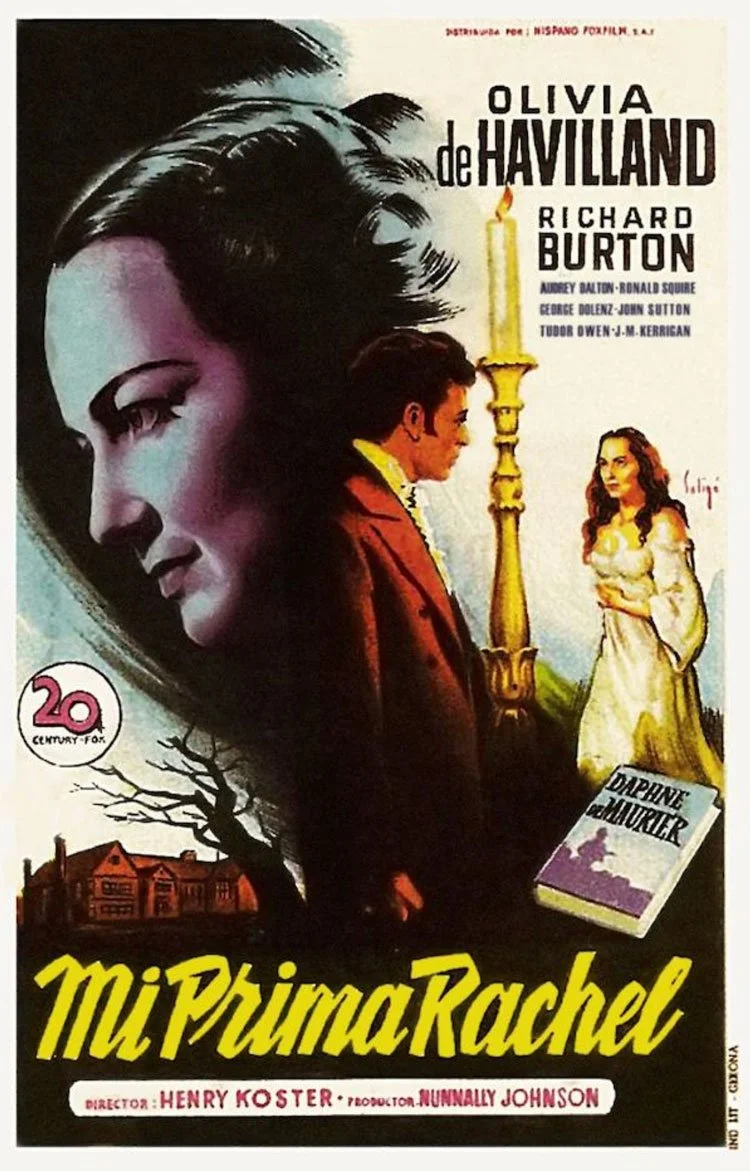“Why did you do it?”
Based on Daphne du Maurier’s 1951 novel, the 1952 Henry Koster film My Cousin Rachel is ambiguous, fiery, and gothic as all get out. It’s full of du Maurier’s hallmarks: enigmatic women, obsessive love (or is that “love”?), heavy atmosphere (both literally and figuratively), locations that feel so essential to things it’s as if the story couldn’t possibly take place anywhere else. It also serves as a showcase for everything I love about Olivia de Havilland. As the titular Rachel, she’s by turns charming, standoffish, warm, cold, alluring, playful, and ultimately unknowable. She was an actress who had an uncanny ability to give a layered performance that only hinted at the depths of the characters she played, and I never stop marveling at the way she could change emotional tack so quickly, even within a single line of dialogue.
Richard Burton is terrific in this, his first Hollywood role. His young Philip Ashley is a man ruled by his passions—sometimes love, sometimes revenge, always a need to dominate. He sweats and storms about the manor and its dangerously damp grounds like a (toxic) romantic hero out of a Brontë novel, a man who is terrifying in his all-consuming desires.
As with another of du Maurier’s women, Rebecca, Rachel is not the main character but everything is about her. She’s mostly seen through the eyes of others, and it’s their assessments of her that we’re told are true. Fiercely independent and ahead of their time, both women are deemed wanton and must pay the ultimate price for their crimes by the men they’ve haunted, even if that haunting wasn’t of their own volition. The two films are also linked by their leading actresses: de Havilland’s sister Joan Fontaine was nominated for her performance as The Second Mrs de Winter in Alfred Hitchcock’s 1940 film adaptation of Rebecca.
My Cousin Rachel is a masterclass in ambiguity, constantly tipping the balance between Philip and Rachel, so much so that in the end, we’re not completely sure of the truth. Was Rachel a wanton murderess? A misunderstood widow? Was Philip being played by her, or was did he simply choose to believe his paranoid delusions over all? The fun is in the not-knowing, I suppose, and watching these performances again and again to eke out more clues.
My top de Havilland recs:
THE HEIRESS (1949)
THE DARK MIRROR (1946)
THE SNAKE PIT (1948)
HUSH, HUSH…SWEET CHARLOTTE (1964)
LADY IN A CAGE (1964)
THE SWARM (1978)
THE SCREAMING WOMAN (1972)
GONE WITH THE WIND (1939) PROBABLY ONCE I ACTUALLY SEE IT!
AIRPORT ‘77 (1977)






